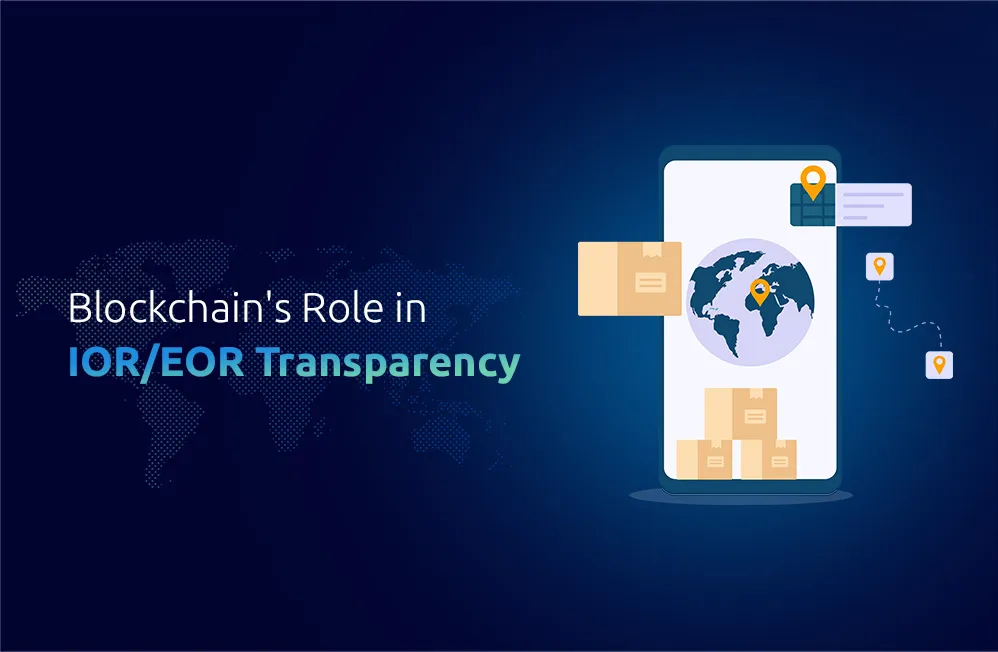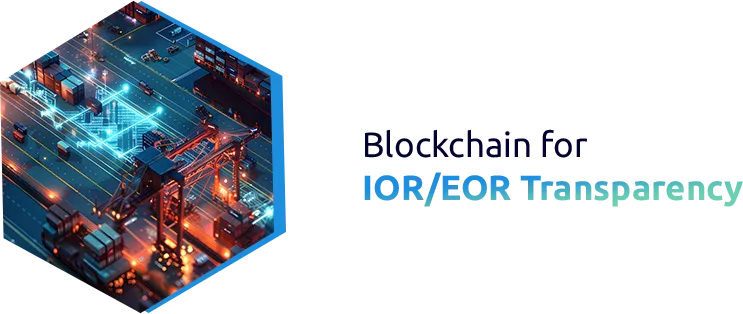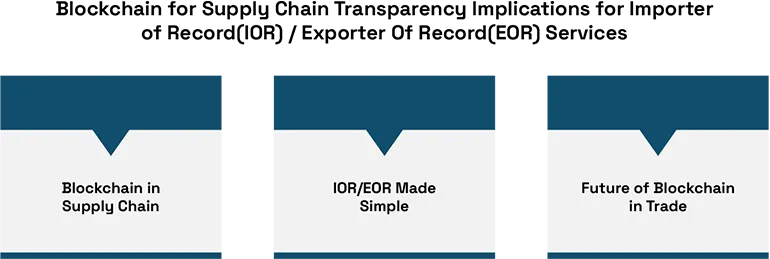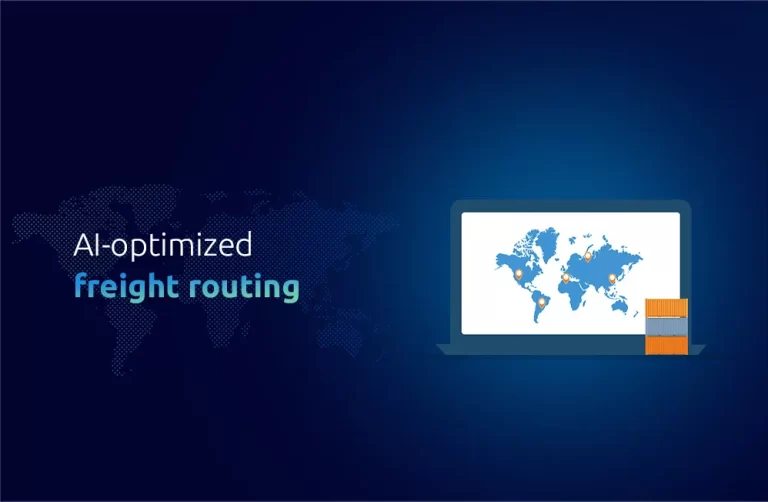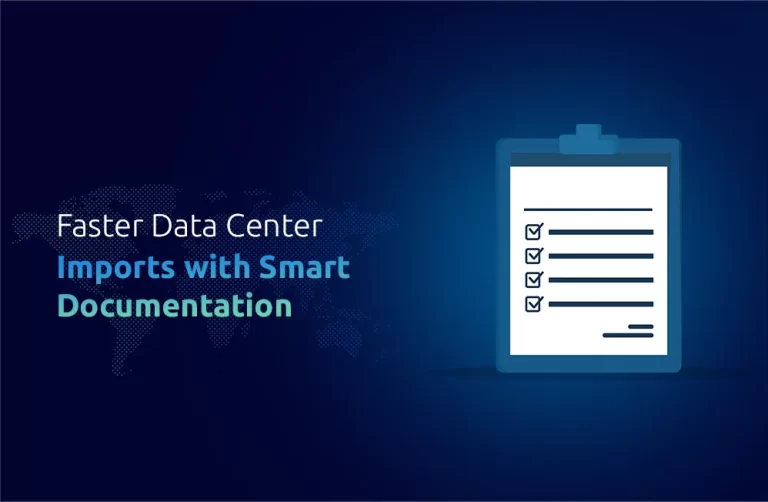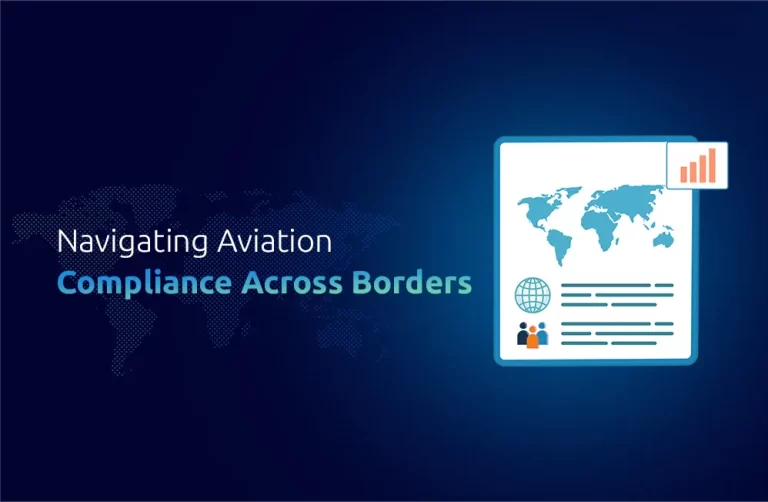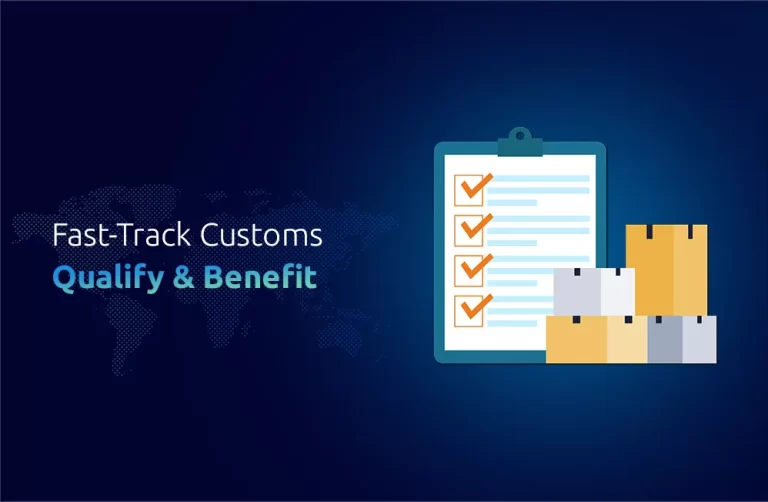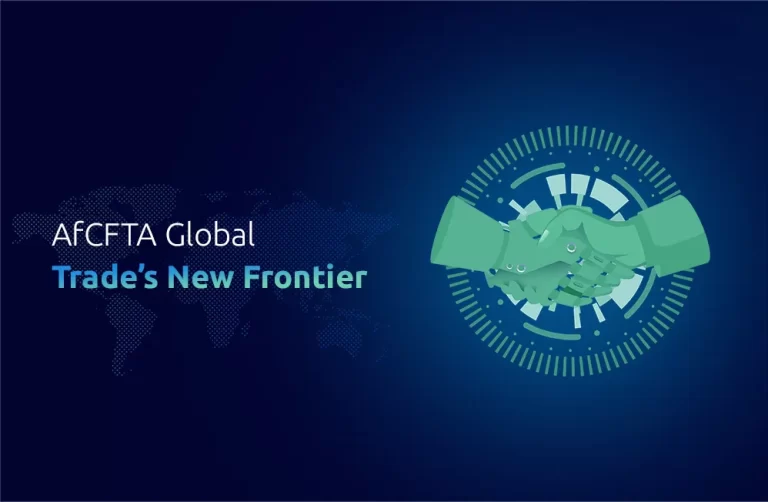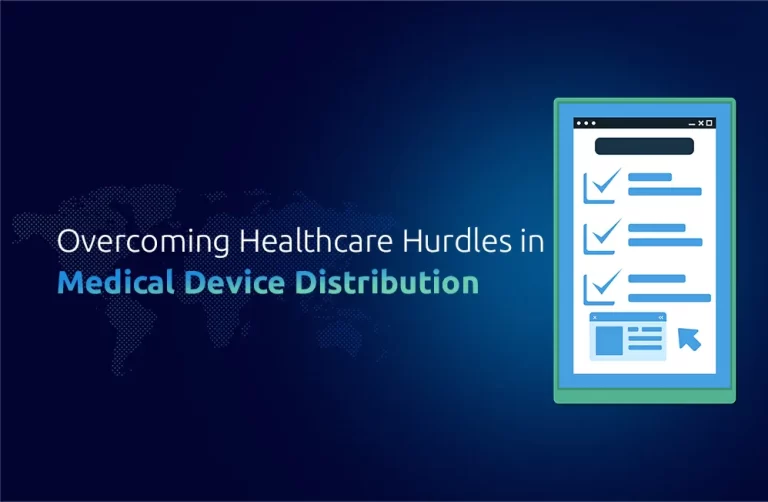Insight
Supply chains are getting more and more complex in today’s global market. With companies grappling with importing and exporting high-value products, including aviation equipment, auto parts, IT data centre hardware, and medical supplies, the demand for transparency is higher than ever. Blockchain technology presents a potentially effective way of solving these issues by providing a secure and transparent trade archive. That has significant consequences for IOR and EOR services because the blockchain has improved compliance and operational efficiency. This blog will take a closer look at how blockchain can impact the supply chain, emphasizing IOR and EOR services in verticals such as aviation, automobile, IT/data centre, and medical equipment.
Understanding IOR and EOR Services
Importer of Record (IOR) & Exporter of Record (EOR) are significant in worldwide trading. The IOR ensures that goods imported into a country follow local regulations, pay relevant duties and taxes, and manage customs clearance. Alternatively, an EOR manages the export regulations, ensuring that the goods are appropriately documented for outbound shipments and compliant with the exporting country’s laws.
Blockchain Technology in Supply Chain Transparency
Blockchain technology provides supply chains with unmatched transparency abilities and security features because of its decentralized, hard-and-fast nature. A blockchain digital transaction system maintains a secure log of all product activities that track items from their starting point to their journey to the endpoint destination. The ability to see everything through blockchain technology aids businesses by lowering fraud incidents, reducing errors, and boosting operational efficiency.
The delivery of IOR and EOR services through blockchain technology generates various advantages.
The real-time monitoring capability of blockchain enables complete item tracking throughout its life cycle. The aviation and medical equipment sectors need this system because their industries must adhere to strict regulatory standards.
The implementation of blockchain enables a lower possibility of documenting errors. Automatic data recording onto digital systems ensures minimal human mistakes and fraudulent events.
Through blockchain, organizations can fulfil better regulatory compliance standards by simplifying their adherence to international and local rules. The permanent digital record system maintains total transparency and proper documentation for payments of duties and customs clearance events.
The supply chain experiences higher efficiency and lower costs when blockchain automates diverse procedures to decrease paperwork. Technology benefits industries such as IT and automobile companies because it ensures prompt deliveries that depend on timing sensitivity.
How Blockchain Supports IOR and EOR Services
Several advantages of blockchain technology enable support for IOR and EOR operations. The services need complex operations because participants from numerous nations must collaborate for execution. The decentralized nature of Blockchain provides multi-stakeholders with real-time access to an identical data set. The documentation access system prevents incorrect data entry, reducing the chance of record discrepancies.
Blockchain and IOR/EOR Compliance
The central priority for IOR and EOR services stands as compliance management. Blockchain technologies enable businesses to create an accessible database that stores required documentation, including import/export licenses, certificates, and regulatory proof records. Because blockchain provides transparent data accessibility, auditors and customs officials can verify information instantly, thus enabling faster clearance at customs checkpoints and establishing stronger trust throughout supply chain processes.
Medical equipment manufacturers must fully comply with both transactional regulations of importing and exporting countries throughout every step of the industry process. Blockchain technology performs automated compliance assessments while guaranteeing precise documentation, leading to decreased possibilities of expensive penalties and delayed shipping times.
Data Transparency | Security in Import/Export Transactions
The storage of sensitive information benefits from security protection and transparent monitoring, which blockchain technology adds to industries that handle authenticated data. The medical equipment industry must maintain data integrity for its highly regulated products. The decentralized blockchain system prevents any entity from changing the recorded data because it stores every transaction without the possibility of tampering.
Strict regulatory standards for automobile and aviation sector parts benefit from blockchain implementation before export or import operations become possible. The system enables traceability of every part throughout its manufacturing process until installation through a smooth documentation process that maintains international standard compliance.
Conclusion
The global supply chain benefits significantly from blockchain technology because it delivers superior transparency and guaranteed security. The advantages of blockchain become obvious to Importer of Record (IOR) and Exporter of Record (EOR) through enhanced traceability combined with better compliance and efficient processes. The growth of industries like aviation and automobile and IT, and medical equipment creates an essential need for blockchain to maintain smooth, compliant transactions. Blockchains bring tremendous enthusiasm to One Union Solutions about modernizing supply chain operations and improving our client service delivery platform.
Did You Know,
By 2025, the blockchain market value dedicated to supply chain implementation projects will reach USD 8.93 billion to improve tracking and regulatory compliance across multiple industries.
FAQ’s
What responsibilities do the Importer of Record and Exporter of Record hold in managing global supply chains?
Global suppliers hire Importers of Record to enforce import regulations for duties and taxes alongside customs clearance requirements, and Exporters of Record manage export documentation and maintain export legality.
What benefits does blockchain technology provide to supply chain transparency?
The supply chain can achieve transparency while fighting fraud and improving efficiency through blockchain technology, which generates an unalterable decentralized trade record.
What advantages does blockchain technology provide to medical equipment import-export operations?
Blockchain technology ensures regulatory compliance and enhanced trackability and creates untampered digital records for all import/export process stages to decrease regulatory offences.
What measures does blockchain utilize to minimize expenses throughout supply chain operations?
Implementing blockchain technology for documentation and verification automation reduces administrative expenditures, minimizes processing errors, and accelerates transaction times and efficiency.
Does blockchain technology offer solutions to compliance challenges within aviation operations?
Blockchain systems enable authentic aviation part tracking, which protects against unauthorized components while ensuring aviation safety.

